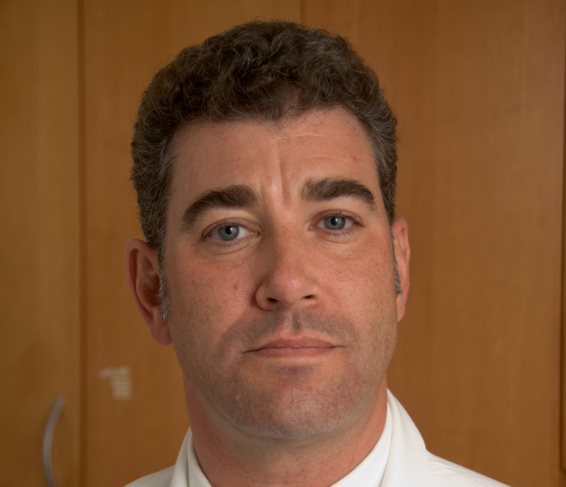For years, patients with advanced forms of gastric and esophageal cancer have had relatively few treatment options. Most patients with inoperable tumors would receive chemotherapy, usually a combination of fluorouracil, oxaliplatin and leucovorin (known as FOLFOX). While this regimen is often effective, patients eventually develop resistance to the treatment and their tumors progress. Now, the tides are turning, driven by a wave of clinical studies showing the benefit of immunotherapy as well as a host of other molecularly targeted therapies.
“Up until now, pretty much every patient with advanced gastric or esophageal cancer received the same treatment,” said Peter Enzinger, MD, director of Dana-Farber’s Center for Esophageal and Gastric Cancer. “But a variety of new, effective treatments in the front-line setting are emerging, and I think in the next year or so the standard of care is going to become much more diverse.”
Enzinger is a principal investigator of a recent breakthrough trial, KEYNOTE-590, which compared the effectiveness of the immunotherapy drug, pembrolizumab (Keytruda®), in combination with standard chemotherapy to chemotherapy alone. The study, which was conducted at Dana-Farber and other sites across the world, revealed that the addition of pembrolizumab significantly improved survival in patients with advanced esophageal cancer and Siewert type 1 gastro-esophageal junction cancer. The results were published in 2021 in The Lancet.
Pembrolizumab blocks a protein called PD-1 on the surface of immune cells. Another immunotherapy drug, called nivolumab, thwarts the same protein. In a series of clinical trials — CheckMate 648, 649, and 577 — researchers in the Center for Esophageal and Gastric Cancer and collaborating institutions have demonstrated the effectiveness of nivolumab in several settings. These include as a first-line therapy for advanced forms of esophageal and gastric cancer, and also as an adjuvant therapy following surgical removal of localized tumors of the esophagus and the gastric-esophageal junction.
“The therapeutic landscape of gastric and esophageal cancer is really evolving — and evolving rapidly,” said Enzinger.
Making steps forward
Other molecularly targeted therapies are becoming more widespread in the treatment of gastric and esophageal cancer. For example, HER2, a biomarker that is commonly tested in breast cancer, can also be present in some gastric and esophageal tumors. Therapies that target HER-2, such as trastuzumab and trastuzumab deruxtecan (also known as T-DXd), are now a key part of the therapeutic arsenal.
Another important emerging target is FGFR2B, a protein present on the surface of cells that receives and responds to growth signals. Enzinger and his colleagues recently published the results of a randomized phase 2 clinical trial testing a FGFR2B-blocking antibody, called bemarituzumab, in combination with FOLFOX in patients with advanced forms of gastric and gastric-esophageal junction cancer. The findings, published in The Lancet Oncology, show promise for patients with FGFR2B-positive tumors and a large, randomized phase 3 study is in progress.
Enzinger and his colleagues have been investigating another targeted therapy in a phase 3 clinical trial known as SPOTLIGHT, which was presented earlier this year at the ASCO Gastrointestinal Cancers Symposium. That study examined the effectiveness of zolbetuximab, an antibody that blocks the CLDN18.2 protein, which helps epithelial cells band together to form an impermeable barrier. Patients with advanced gastric or gastric-esophageal junction cancer were enrolled in SPOTLIGHT and received zolbetuximab and FOLFOX or FOLFOX alone. Those treated with zolbetuximab plus chemotherapy showed improved overall survival of roughly two months, compared to patients treated with chemotherapy alone.
While the survival benefit is fairly modest, Enzinger believes CLDN18.2-targeting therapies hold promise.
“Our study demonstrates that this target is active in gastric and esophageal cancer,” he said. “It’s an important step forward.”
About the Medical Reviewer

Dr. Enzinger received his college and medical degrees from Brown University in Providence, RI. He completed his Internal Medicine residency at the University of Rochester and his Medical Oncology and Hematology fellowship at Memorial Sloan-Kettering Cancer Center (Cornell University) in New York City. Additionally, he served as a Fogarty Fellow (Experimental Cell Biology) at Hospital St. Louis and the Universite Paris VII. He is board-certified in both Internal Medicine and Medical Oncology.

We are happy to support Dr Enzingers continued efforts and see the positive results!
I received ICI treatment at DF by Dr Schraag and Dr Robinson with 100% success,in fact , do to extreme inflammation I could only take 2 to 3 of the infusions at 6 weeks apart . My treatments started in Jan 87 and after a couple of months the cancer was undetectable and I have been released from the program cancer free . I cannot imagine a better treatment center or a better team of Drs and staff .
Sam Cochrane
5/4/1933
In 2011 Dr. Enzinger confirmed that my Barrette cells in my Esophagus had changed. I should see an Oncologist Surgeon. He gave me 2 names, one of which was Dr. Bueno. To make a long story short, Dr. Bueno removed my esophagus and to this day I have survived with very little change in lifestyle. I would recommend Dr Bueno for any Thoracic Surgery this side of the moon. I still see him.
Please pass on to Dr. Enzinger my eternal gratitude for saving me, in cooperation with Drs. Mammon and Bueno, from esophageal cancer in 2012. I have so far enjoyed 11 years of scholarship, teaching, and grandparenthood thanks to their wonderful care and that of the Dana Farber and Brigham staffs. What wonderful people they are.